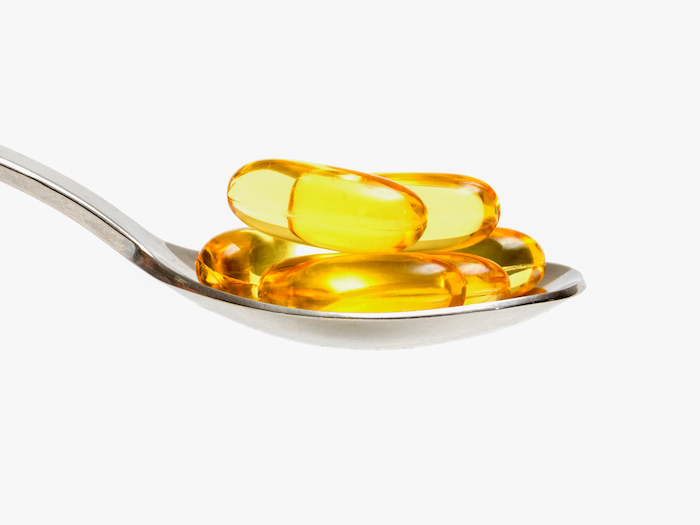The Best Vitamins for Seniors
Read this before you buy another bottle of vitamins or minerals.

What are the best vitamins for seniors? Ask 10 different people and you'll likely hear 10 different answers, most involving a dietary supplement that's magically cured a variety of health problems.
But can you guess how many supplements experts think all older adults should take? The answer: Zero.
That might be a little shocking, especially if your medicine cabinet is jammed with pills that you’ve been led to believe will treat your health conditions, make you stronger, boost your energy, preserve your memory, and reduce the risk of heart disease and cancer.
About half of people over 65 purchase dietary supplements, but experts say that cash would be better spent on healthy foods.
“I think supplements are seen by many as only having the potential for benefit, but there is a real risk of harm,” says Stephanie Nothelle, M.D., assistant professor of medicine at The Johns Hopkins University School of Medicine.
Dr. Nothelle notes that many supplements have side effects and can interact with common prescription medications. Staying safe gets even trickier if you're an older adult taking multiple medications. The National Institute on Aging (NIA) also points out that vitamins and supplements that work well for a friend or loved one may not have the same - if any - effect on you.
There's also a chance that you might not be getting what the bottle says, she adds, since supplements aren't regulated the same way as prescription and over-the-counter medicines. The NIA says it's best to take supplements only under the advice and guidance of your doctor or registered dietitian.
And there’s another good reason why you may not benefit from supplements: You’re getting everything you need naturally, thanks to a healthy diet and lifestyle.
"For a healthy older adult, I do not routinely recommend any supplements," says Dr. Nothelle, who specializes in healthcare for older adults. "The best form of vitamins is from the foods we eat. I recommend that all older adults eat a balanced diet of whole, minimally processed foods."
The NIH's National Institute on Aging (NIA) agrees. The organization says that "most, if not all, of your daily vitamins and minerals should come from food."
That means choosing nutrient-dense foods, especially fruits, veggies, fatty fish, nuts, and other whole foods. (Learn more about how to meet your daily needs in our guide to healthy eating for older adults.)
That said, some older adults do need more of certain nutrients. Here are the five supplements to talk about with your doctor.
Healthy eating and fitness go together! SilverSneakers classes and events are happening right now at participating gyms, online through SilverSneakers LIVE, and at community centers near you. Activate your free online account to get started.
1. Vitamin D
"Until recently, many clinicians routinely recommended vitamin D to prevent falls," Dr. Nothelle says. "But the U.S. Preventative Services Task Force no longer recommends using vitamin D to prevent falls. It does recommend structured exercise programs."
In other words, being active is more important.
Since your body makes and absorbs vitamin D when exposed to sun, you might already be getting plenty-or not. Older adults who don't spend as much time outside or who have skin changes that slow down the body's production of vitamin D may need extra vitamin D, Dr. Nothelle says.
If you’re worried about falls, ask your doctor if you should get a blood vitamin D test to check your levels.
Recommended reading: Vitamin D: Are You Getting Enough of This Key Nutrient?
2. Vitamin B12
This nutrient keeps nerve and blood cells healthy and protects against a type of anemia that can make you feel exhausted.
"Vitamin B12 needs acid from the stomach to be properly absorbed," Dr. Nothelle says. Some seniors develop pernicious anemia, a condition where the stomach makes less acid. If you take acid reflux medication (proton pump inhibitors, like Prilosec) or blood sugar medication (like metformin) you might need more vitamin B12.
Again, don't start taking it before checking with your doctor. "Like vitamin D, vitamin B12 levels can be measured in the blood," Dr. Nothelle says, "so treatment with a supplement can be monitored."
3. Calcium
Doctors used to recommend that all women over 50 take calcium to help combat osteoporosis. But more recent research has shown some serious downsides to calcium supplements, such as an increased risk of cardiovascular disease.
Adults over age 50 often do need to boost their calcium level, Dr. Nothelle says, but it doesn't have to come in pill form. "Eating plenty of dairy, canned fish with soft bones, and dark, leafy greens like kale may be a safer option," she says.
Need meal inspiration? Try a hearty kale salad or an open-faced tuna and veggie sandwich. Get the recipes here.
Suscríbase a nuestro boletín informativo
Es rápido y fácil: Usted podría estar entre las 13 millones de personas elegibles.
¿Ya es miembro? Haga clic para descubrir nuestros más de 15,000 centros participantes.
Síganos
Recommended reading: 5 Sneaky Signs You’re Not Getting Enough Calcium
4. Vitamin B6
Vitamin B6 also makes the NIA's list of nutrients that older adults sometimes need to boost. Vitamin B6 plays an important role in how well your immune system functions. It helps protect nerves and form red blood cells. Potatoes, bananas, and chicken are good sources. Your doctor can do a blood test to check your level.
5. Acetyl-L-Carnitine (ALCAR)
Your liver and kidneys make something called carnitine — and it is crucial to the functioning of your mitochondria, which are the power plants in your cells. In fact, some studies link ALCAR supplements with fighting age-related fatigue and cognitive decline.
The NIH Office of Dietary Supplements says ALCAR may be helpful for people with mild cognitive impairment or Alzheimer’s disease. In the studies, subjects took 1.5 to 3.0 grams a day of acetyl-L-carnitine for 3 to 12 months.
As noted with the other supplements, before taking, ask your doctor if this is a supplement that would benefit you.
Recommended reading: 8 Delicious Ways to Eat Your Way to Better Brain Health
Cómo mantener sano el cerebro: La guía SilverSneakers
Important Tips Before Taking Supplements
The NIA encourages all older adults to check with their doctor before taking any supplement. Be sure you understand:
- The correct dose your doctor recommends for you
- How to take it — for example, with a meal or at a certain time of day
- Possible side effects and what to do if you experience any
- Which brand they recommend — if none, ask the pharmacist or a registered dietitian
Finally, before purchasing, look for the United States Pharmacopeia (USP) verified mark on the bottle or packaging. USP verifies the identity, quality, strength, and purity of supplements.
Recommended reading: Why It’s So Important to Consult Your Doctor Before Taking Supplements
Activate Your FREE SilverSneakers Online Account
Get hundreds of free SilverSneakers On-Demand videos and stay in touch with us by creating your free online account. You don’t have to be a SilverSneakers member to get on-demand workout videos, health and fitness tips from SilverSneakers, and more.
SilverSneakers members can go to thousands of nationwide gyms and fitness locations, plus take SilverSneakers LIVE online classes led by specially trained instructors and designed for all fitness levels and abilities – at no additional cost. If you have a Medicare Advantage plan, it may include SilverSneakers. Check your eligibility here.
Already a member? Get your SilverSneakers member ID, search for locations near you, and all the health and wellness resources you need by logging in to your online member account here.





